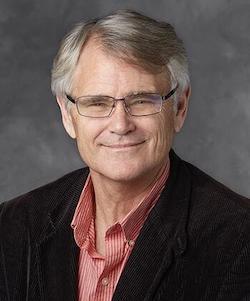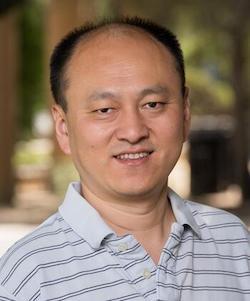Labor Market Outcomes, Cognitive Skills, and Noncognitive Skills in Rural China with Prof. Paul Glewwe
SCCEI Spring Seminar Series
Wednesday, April 12, 2023 | 11:00 am -12:15 pm Pacific Time
Goldman Room E409, Encina Hall, 616 Jane Stanford Way
Labor Market Outcomes, Cognitive Skills, and Noncognitive Skills in Rural China
This paper examines the relationship between childhood cognitive and noncognitive skills and labor market outcomes, using a rich longitudinal data set from rural China to overcome simultaneity concerns. We find that childhood cognitive skills have strong explanatory power for the wages of adults in their late 20s, even after controlling for years of education. We also find gender differences in the returns to various noncognitive skills, including internalizing and externalizing behavior. Females are penalized for externalizing behavior while males are rewarded, suggesting the role of gender norms in the labor market.
About the Speaker

Paul Glewwe is a Distinguished McKnight University Professor at the University of Minnesota. His interests are economics of education, poverty and inequality in developing countries, and applied econometrics. Since receiving his Ph.D. in Economics from Stanford University, he has worked in the following countries: Cambodia, China, Cote d'Ivoire, Ghana, Honduras, India, Jamaica, Jordan, Kenya, Laos, Madagascar, Malaysia, Morocco, Nepal, Philippines, Sri Lanka, Thailand, Turkey, and Viet Nam. His recent publications have appeared in the Handbook of the Economics of Education, Economic Development and Cultural Change, Journal of Development Economics, Journal of Economic Literature, Journal of Human Resources, Journal of Political Economy and World Bank Economic Review. Glewwe is currently a co-editor for Economic Development and Cultural Change.
Seminar Series Moderators

Scott Rozelle is the Helen F. Farnsworth Senior Fellow and the co-director of Stanford Center on China's Economy and Institutions in the Freeman Spogli Institute for International Studies and Stanford Institute for Economic Policy Research at Stanford University. For the past 30 years, he has worked on the economics of poverty reduction. Currently, his work on poverty has its full focus on human capital, including issues of rural health, nutrition and education. For the past 20 year, Rozelle has been the chair of the International Advisory Board of the Center for Chinese Agricultural Policy, Chinese Academy of Sciences (CAS). Most recently, Rozelle's research focuses on the economics of poverty and inequality, with an emphasis on rural education, health and nutrition in China. In recognition of this work, Dr. Rozelle has received numerous honors and awards. Among them, he became a Yangtse Scholar (Changjiang Xuezhe) in Renmin University of China in 2008. In 2008 he also was awarded the Friendship Award by Premiere Wen Jiabao, the highest honor that can be bestowed on a foreigner.

Hongbin Li is the Co-director of Stanford Center on China's Economy and Institutions, and a Senior Fellow of Stanford Institute for Economic Policy Research (SIEPR) and the Freeman Spogli Institute for International Studies (FSI). Hongbin obtained his Ph.D. in economics from Stanford University in 2001 and joined the economics department of the Chinese University of Hong Kong (CUHK), where he became full professor in 2007. He was also one of the two founding directors of the Institute of Economics and Finance at the CUHK. He taught at Tsinghua University in Beijing 2007-2016 and was C.V. Starr Chair Professor of Economics in the School of Economics and Management. He founded the Chinese College Student Survey (CCSS) in 2009 and the China Employer-Employee Survey (CEES) in 2014.
Hongbin’s research has been focused on the transition and development of the Chinese economy, and the evidence-based research results have been both widely covered by media outlets and well read by policy makers around the world. He is currently the co-editor of the Journal of Comparative Economics.
Watch Recording
Goldman Room E409, Encina Hall











